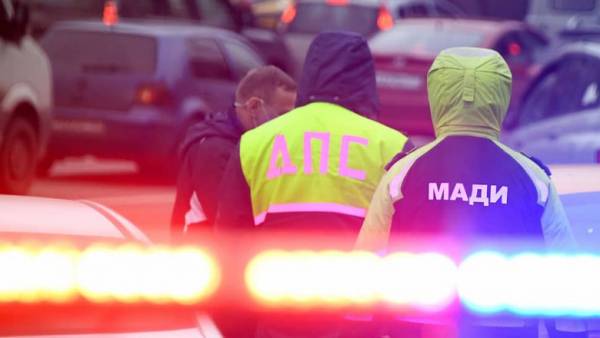
Federal Law No. 458, which has entered into force, supplements the Criminal Code with a new Article 264.2 — “Violation of traffic rules by a person subjected to administrative punishment and deprived of the right to drive vehicles.” It will be applied to citizens who have got behind the wheel of a car, having already been deprived of their rights for repeatedly exceeding the speed limit by 60 km/h or more, or for re-entering the oncoming lane.
In other words, to get charged under Article 264.2 of the Criminal Code, you need to drive into the oncoming lane three times or seriously exceed the speed limit three times.
Previously, in such a situation, administrative liability was applied with the possibility of deprivation of rights. And now the court has a fork in the choice of punishment for a repeat offender – from a fine of 200-300 thousand rubles to two years in prison. But that’s not all.
If a person convicted under the new Article 264.2 of the Criminal Code again finds himself on the oncoming lane or significantly exceeds the speed limit, the court will be able to sentence him to three years in prison.
The amendments, we recall, appeared after a high-profile accident in Moscow. In November 2021, the well-known autoblogger Said Gubdensky lost control and flew into the oncoming lane on Kutuzovsky Prospekt. He died together with a passenger — the president of the Federation of Automobile and Motorsport of Dagestan, Zaur Ibragimov. In April 2021, blogger Edward Bill drove into oncoming traffic on the Garden Ring and collided with a car; a woman was severely injured in the accident.
After an accident with The speaker of the State Duma Vyacheslav Volodin called on Said Gubdensky to fight “hooliganism on the roads” and instructed to prepare an appropriate bill. It was developed by United Russia in a month and adopted in three readings on December 21-22, despite the criticism of the Supreme Court. They pointed out that the authors of the amendments did not provide “sufficient justification” for criminalizing the composition of administrative offenses.
“The usual fines do not stop car thieves—” Volodin said in response. “Often, for the sake of hype in social networks, they are ready for any violations, without thinking that thereby they risk the lives and health of others.” The speaker expects that the new law will “protect the life and health of our citizens.”
New fines from cameras: what are motorists afraid of?
Today, speeding is recorded in most cases by cameras (in some regions, inspectors occasionally use manual radars). Thus, most violators pay fines, but remain with their rights, says lawyer, lawyer of the Freedom of Choice movement Sergey Radko. “This means that reckless drivers with several hundred fines for significant speeding will still not be able to be the subjects of a new crime—” he explains— “Even if we recall the most resonant incidents of recent times involving reckless car bloggers, there were practically no “losers” among them.”
The expert adds that the new article will not apply to citizens deprived of their rights for drunk driving. Although this is no less serious violation than oncoming traffic or speeding. “Imagine how a complete alcoholic, deprived of the right to drive for repeatedly driving “under the degree”, gets behind the wheel again and rushes towards the stream on Kutuzovsky Prospekt at a speed of 200 km/h. So, he does not risk being in the dock,” Sergei Radko points out the gaps in the new criminal composition.
The legislation already had norms allowing to deal with such violators, adds Anton Shaparin, vice-president of the National Automobile Union, for example, the article “Hooliganism” in the Criminal Code. But for some reason they were not used against reckless drivers. Shaparin recalled that at the end of November 2021, at the initiative of the traffic police and the prosecutor’s office, the first court decision was made to block the accounts of some auto bloggers who systematically violate traffic rules. But it was never executed — access to the pages is still not closed. “Malicious traffic violators are confident that they will be able to evade responsibility even if the entire state apparatus is aimed at combating them,” the expert summarizes.